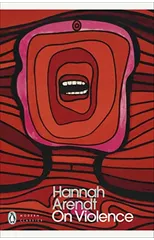“There are no dangerous thoughts for the simple reason that thinking itself is such a dangerous enterprise.” —Hannah Arendt In these interviews—including her final interview given in October 1973, in the midst of Watergate and the Yom Kippur War—Hannah Arendt discusses politics, war, protest movements, the Eichmann trial, Jewish identity, and language with the incisiveness and courage that always set her apart.
Hannah Arendt
Hannah Arendt (1906-1975) was a German-American political theorist and philosopher known for her groundbreaking works on totalitarianism, authority, and the nature of power. Her most notable works include "The Origins of Totalitarianism" and "The Human Condition." Arendt's writing style is characterized by its clear and precise language, as well as its deep philosophical insights. She is considered one of the most influential political thinkers of the 20th century, and her works continue to be studied and debated in academic circles. Arendt's most famous work, "Eichmann in Jerusalem: A Report on the Banality of Evil," explores the nature of evil and responsibility in the context of the Holocaust. Her contributions to literature have had a lasting impact on the fields of political theory, philosophy, and ethics.






